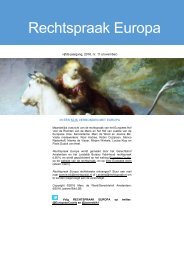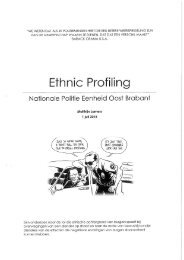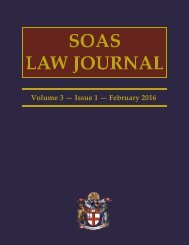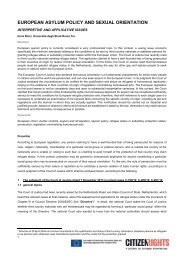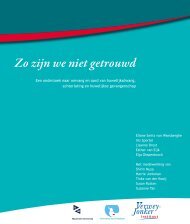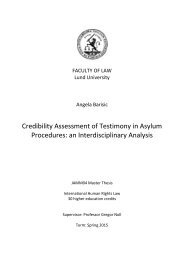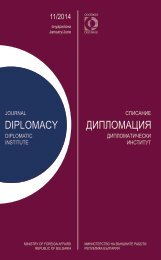AEMI
AEMI-2016-web
AEMI-2016-web
Create successful ePaper yourself
Turn your PDF publications into a flip-book with our unique Google optimized e-Paper software.
194 <strong>AEMI</strong> JOURNAL 2015 2016<br />
which is neither straightforward nor<br />
unanimous and whose definition is<br />
often dependent on a given country’s<br />
social context and immigration history.<br />
In this article we prefer to define<br />
ethnic media as that, ‘produced by and<br />
for a) immigrants, b) racial, ethnic and<br />
linguistic minorities as well as c) indigenous<br />
populations living across different<br />
countries,’ (Matsaganis, Katz and Ball-<br />
Rockeach, 2011). Ethnic media can help<br />
to understand a minority’s or community’s<br />
social, economic and cultural background<br />
(Matsaganis et al., 2011) as well<br />
as act as countervailing representation<br />
to the potentially negative depictions in<br />
mainstream media (Titley, 2008); they<br />
also create a self representation and fulfill<br />
the dual role of providing a space for<br />
the expression of language and culture<br />
and act as a resource to facilitate settling<br />
in a new country. Other potential<br />
strengths of ethnic media are the way in<br />
which they can support various forms<br />
of engagement with the host society,<br />
through actions that we will be seeing<br />
bellow, and its capacity for mediating<br />
and empowering a group’s participation<br />
in the public sphere (Georgiou, 2006;<br />
Cascão, 2013).<br />
The range of Portuguese language<br />
ethnic media in Luxembourg includes<br />
radio stations like Radio Latina, with<br />
a programme mainly aimed at the Portuguese<br />
speaking community, websites<br />
such as bomdia.lu, and in print the two<br />
newspapers Contacto (founded in 1970)<br />
and Correio (founded in 1999). All of<br />
the above media are addressed not only<br />
at the Portuguese nationals but also immigrants<br />
from former Portuguese colonies<br />
in Africa such as Cape Verde and<br />
Guinea Bissau as well as Brazilians.<br />
Contacto was founded in 1970 by a<br />
Luxembourger, Lucien Huss, and a Portuguese,<br />
Carlos Pina, both working then<br />
at the Catholic Mission, an association<br />
that provided guidance and assistance<br />
upon the arrival of immigrants to Luxembourg.<br />
Their first co-signed editorial<br />
left no doubt about the newspaper’s<br />
goals: it was there to ‘build bridges’ 4 .<br />
In its first years, informing its readers<br />
about the political situation in Portugal<br />
was at the core of its editorial mission,<br />
understandable in light of the political<br />
turmoil Portugal was undergoing at the<br />
time. This tendency to focus on Portugal’s<br />
daily affairs changed in the 1980’s,<br />
when Luxembourgish affairs began to<br />
be given equal coverage, making the<br />
newspaper become more transnational.<br />
However, the core focus of Contacto<br />
continued to be primarily and essentially<br />
anything affecting the interests of<br />
the local Portuguese speaking community.<br />
It is currently the preferred media<br />
outlet for Portuguese in Luxembourg,<br />
with audience levels reaching 55,400<br />
readers per week, i.e. 12 per cent of the<br />
total Luxembourg population. 5<br />
Theoretical Framework: Interculturalism,<br />
Integration and Intercultural<br />
Media Integration<br />
Before introducing the key concept of<br />
intercultural media integration (Geiβler<br />
and Weber-Menges, 2009), it is useful<br />
to first examine the political concept<br />
of interculturalism and the ways it approaches<br />
cultural diversity in contemporary<br />
societies. Interculturalism directs us<br />
to particular national contexts and different<br />
stands taken politically on immigration<br />
issues and assumptions on what<br />
integration should entail. In Europe,



